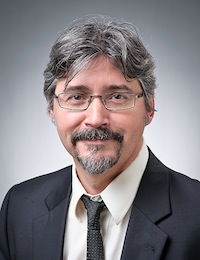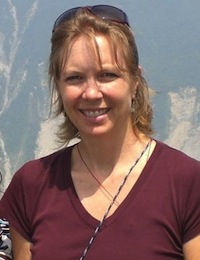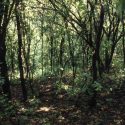Professional degree a new tool for conservation leaders
In the face of unprecedented environmental challenges that demand novel solutions, the University of Wisconsin–Madison will soon begin accepting applications for a model graduate degree program to train tomorrow’s conservation leaders.

Paul Robbins
Developed and offered by the Nelson Institute for Environmental Studies, the professional master’s program in environmental conservation will provide practical skills and on-the-ground training to those wanting to advance in environmental fields.
“We’re creating a new kind of conservation practitioner,” says Nelson Institute Director Paul Robbins. “We’re going to change the way people do conservation and the way they work with communities. To do that, you have to change the way you train people.”
The 15-month, 32-credit blended curriculum is designed to help early-career professionals boost their leadership and management expertise, combining on-campus learning with remote experiences. The program offers a condensed timeframe and lower costs than two-year residential graduate programs.
“This will be an attractive, accessible and unique program design,” says program chair Janet Silbernagel, a professor of environmental studies and landscape architecture. “Students still come out with a 32-credit master’s degree with robust professional training. And throughout the program they learn about different leadership possibilities, develop their presence, and get inside the professional network.”
Courses will span conservation planning, environmental policy, biology, ecology, social science and sustainability, plus specific professional skills tailored to a student’s interests. Program coordinators envision a cohort of domestic and international students building off of each other’s experiences.

Janet Silbernagel
“We’ll have energetic people who want to change the world and experienced people from all over the world who want to change their lives. You put those two together and they can teach each other,” says Robbins.
The program begins with a Summer Conservation Institute, which will include events with international conservation practitioners, offering students extraordinary access to accomplished professionals. An on-campus fall semester of intensive study and a remote spring semester of distance learning will follow.
“Students come in the summer and stay through the fall, which is a beautiful time in Madison,” says Silbernagel. “Then in spring, they’re able to go back to their employer, home or wherever they need to be, and continue taking classes online.”
The program culminates with a summer leadership experience, placing students in a new, more advanced role with their current employer or with a range of partner organizations and agencies such as Conservation International, the International Crane Foundation, The Nature Conservancy, the National Oceanic and Atmospheric Administration and the U.S. Forest Service.
“We imagine working with students from the time they arrive to hone in on their interests and what their expertise is best suited for,” says Silbernagel. “We want students to get experience in executive-level decision making and conservation strategies, running a project or program for a term.”
The program is an extension of the Nelson Institute’s Conservation Biology and Sustainable Development (CBSD) graduate degree, shifting the program to master’s-level professional training.
“We’re going to change the way people do conservation and the way they work with communities.”
Paul Robbins
Launched in 1990, CBSD was designed to allow students to pursue either a professional or research track, with growing interest in the professional emphasis. Students wishing to pursue the research-focused degree will be integrated into the Nelson Institute’s interdisciplinary Environment and Resources graduate program.
“With our current CBSD program, we realized a large number of students were wanting to pursue the professional track,” says Silbernagel. “And, from the employer side, we knew there was demand for students finishing their master’s who could go right into a professional practice with biology, science and research skills, but also serve as project managers. We were hearing from both sides that we had a gap.”
Robbins believes this practice-focused professional master’s could be a valuable model for fields beyond conservation.
“This program has the advantages of a cohort, place-based experience on campus, with the effective use of distance education,” he says. “This is just the beginning of thinking how the university serves different publics and brings in new constituents who want different kinds of training, then gets them back out in the world to be difference makers.”
Applications for the environmental conservation professional master’s program can be submitted online beginning July 1. For more information or to apply, visit nelson.wisc.edu/conservation.



